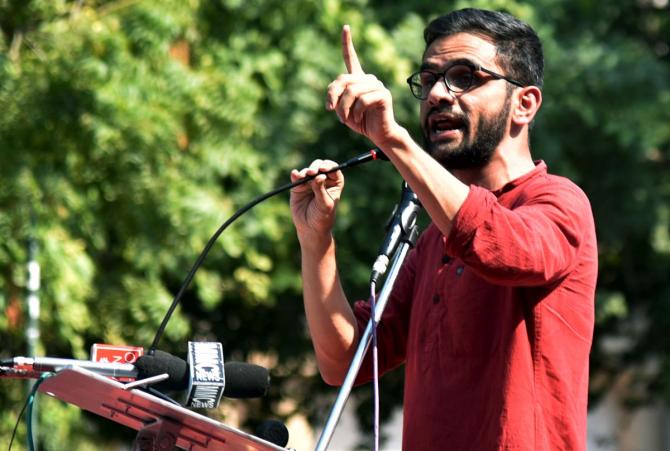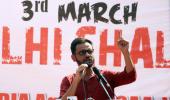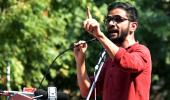The Delhi high court on Monday observed that the speech in Amravati, Maharashtra, delivered by former Jawaharlal Nehru University student Umar Khalid, arrested in an Unlawful Activities (Prevention) Act case related to the alleged conspiracy behind the riots in Delhi in February 2020, was in bad taste but it does not make it a terrorist act.

The high court's observation came while hearing the bail plea of Khalid who has challenged a trial court's March 24 order dismissing his bail application in the case.
"That the speech is in bad taste, does not make it a terrorist act. We understand that extremely well. If the case of the prosecution is premised on how offensive the speech was, that by itself would not constitute an offence. We will give them (prosecution) the opportunity,” a bench of Justices Siddharth Mridul and Rajnish Bhatnagar said.
The bench further said that the speech was "offensive" and "distasteful" and "may tantamount to defamation but it will not tantamount to a terrorist activity."
The court was hearing the submissions advanced by Khalid's counsel who was referring to the speech made by Khalid on February 17, 2020, in Amravati. He also read out the statements given by various protected witnesses in the case.
The court listed the matter for July 4 for a hearing concluding arguments by Khalid's counsel.
It had earlier said that the high court was not required to test the veracity of witnesses' statements at the stage of considering the bail plea and that it cannot hold a mini-trial at this stage.
Khalid's counsel had earlier argued that he has been in jail for the last two years based on a protected witness's hearsay statement which has no corroboration.
The counsel had contended that the protests against the Citizenship Amendment Act were against an “unjust law” and it was in no way an act against the Sovereign and that several of the acts alleged or incidents cited against him by the police were not even qualifying as ‘terror' and the protestors were not perpetuating violence as contemplated under the UAPA.
The high court had earlier questioned Khalid for using certain objectionable words against Prime Minister Narendra Modi in his speech in Amravati on February 21, 2020.
Khalid was arrested on September 13, 2020, and has been in custody since then.
Khalid, Sharjeel Imam, and several others have been booked under the anti-terror law UAPA and provisions of the Indian Penal Code in the case for allegedly being the "masterminds" of the February 2020 riots, which had left 53 people dead and over 700 injured.
The violence had erupted during the protests against the Citizenship Amendment Act and the National Register of Citizens.
The Delhi police has opposed the bail plea, saying the narratives sought to be created by Khalid cannot be looked into as his defence at this stage and the trial court refused to release him by a well-reasoned order which suffers from no illegality.
Besides Khalid, activist Khalid Saifi, JNU students Natasha Narwal and Devangana Kalita, Jamia Coordination Committee members Safoora Zargar, former AAP councillor Tahir Hussain and several others have also been booked under the stringent law in the case.










